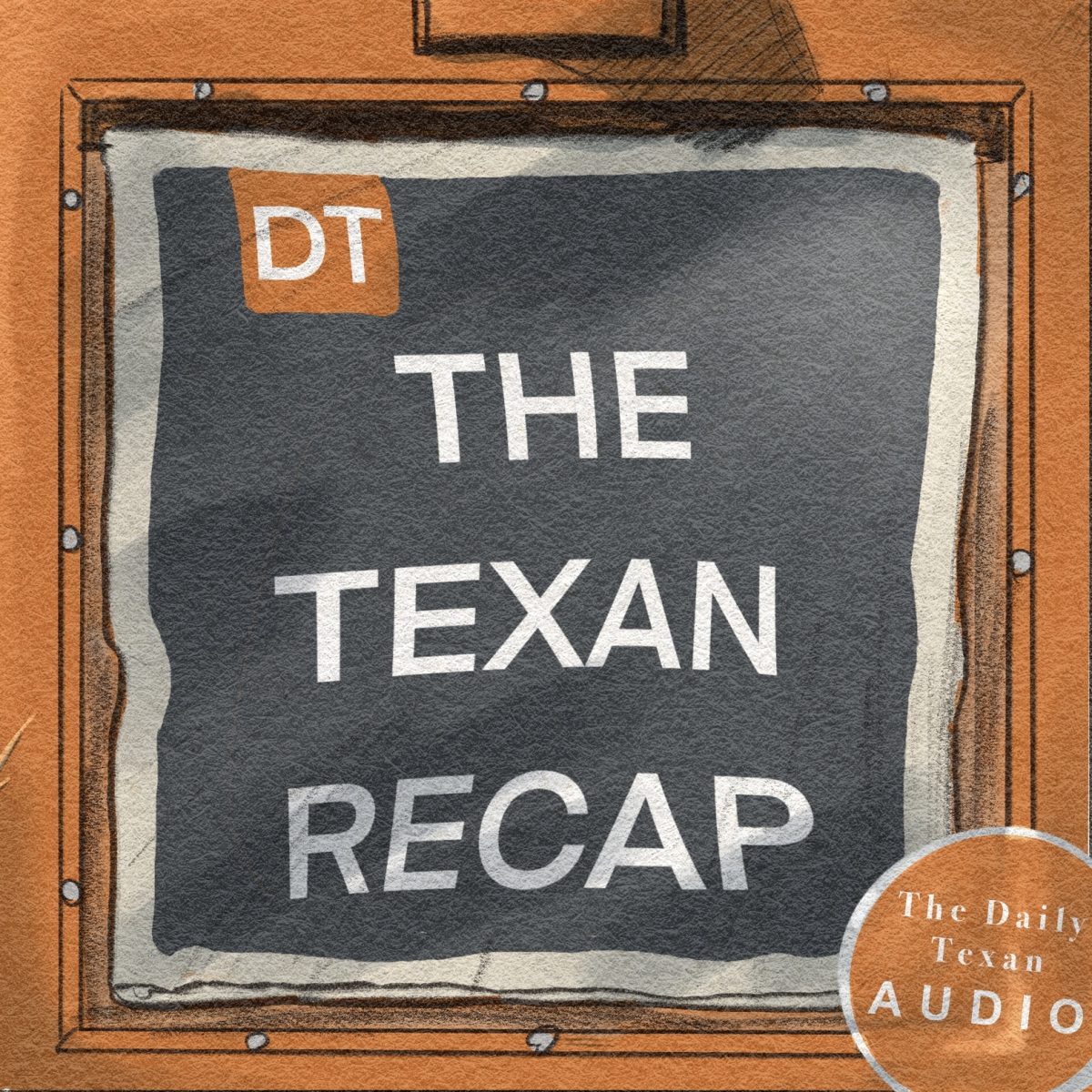Jack Lewellyn: The University of Texas guts the flag system from every degree’s class requirements.
I’m your host this week, Jack Lewellyn – and this is The Texan Recap. Here’s what you missed this week.
UT is cutting out the flag system for degree requirements. Senior News Reporter Isaiah Williams is here with the story. Thanks for being here today, Isaiah.
Isaiah Williams: Oh, thanks man. I’m happy to be here.
Lewellyn: So just to start us off, could you remind us what UT’s flag System is?
Williams: Well, students at UT have to do two things to graduate. They have to fulfill what’s called the core curriculum, which is set by, I believe, the Higher Education Coordinating Board. Right, that’s where you see your United States history requirement and stuff like your VAPA.
But specific to UT, we have something here called the flag system, and that’s where UT students are required to take a number of classes. With each of those classes having an attached flag. For instance, there is a writing flag, and so to graduate, UT students are required to take a class that is marked with that writing flag.
And so the flag system had come under fire recently because people in some colleges had said that some of the flags, including the writing flag, the ethics flag, the cultural diversity and global culture flags were a little inaccessible to some people in some programs within some colleges. It also come under fire from the legislature who had thought that the cultural diversity flag and global cultures flag might be a violation of SB 17 that had passed two years ago.
And so what we saw was a pretty interesting conflict between professors, counselors, students, and this conflict has been about okay, if we can acknowledge that the flag system has some real problems, we can acknowledge that the flag system has some problems, that people are just going after it just to go after it.
How are we going to fix it and how are we going to make it a more equitable system for UT students?
Lewellyn: So moving from there, why was the system removed and who made that decision?
Williams: For the last few months, the office of the Provost has charged a committee with looking at revising and or making recommendations for the removal of the flag system.
Now, some of it was because of the issues I just mentioned, but this committee, what they called the flag review committee. Was sent forth to ask students and faculty their issues with the flag system and tried to make recommendations about how to revise it in the future. We have to remember that the flag system is about 20 years old.
And so the office of the Provost really set that time peg as the reason why they were revising the flag system. They said a few things. One of the things was that the skills in the flag system no longer mirrored what employers wanted to see out of students. So that was one of their main arguments and one of their main themes in creating the new system that they’re building now.
Lewellyn: All right. And your story also goes over some emails from UT faculty about all of this. What did they have to say?
Williams: In terms of UT faculty? I’ve heard a lot from various liberal arts professors, but also various natural science professors. What we tend to see is that everybody acknowledges that the flag system had some very clear issues.
However, some of the more liberal arts professors have been thinking, okay, some of my classes have been given these flags and those flags incentivize people to take my classes. What’s going to incentivize people to take my classes now? Whereas people in the natural science office, people in the engineering office are more saying, okay, our students should now be able to take our classes more ’cause they don’t have to worry about the flags.
And so it’s again, this really interesting. Interdepartmental- I don’t wanna characterize it as a conflict, but I do wanna characterize it as a very interesting way we see the colleges manifest themselves. So I had also, going from what we had talked about in the story, the emails with Art Markman, who was one of the people not on the flag review committee.
He was what’s called an ex officio member of the Flag Review Committee, which means he still did work for it, while not being technically on it’s logistics. But anyways, he had shared it with me. They are a framework for building what’s called a competency system, and it’s very similar to the flag system in that it will mark classes based on a certain competency, but they are slightly altered and they’re slightly more skills based.
And so while the draft going around is very early and we don’t know what that system is going to look like, Markman says we will have something by fall 2026.
Lewellyn: So with that date in mind, how might this change affect both current and future UT students?
Williams: Well, there are two ways that they could go about this.
They could do what’s called a retroactive change, or they could not do a retroactive change if they were to do a retroactive change. What we would see is likely that the classes we have already taken would be given competencies. Let’s say you’ve already taken a class that gives you a competency in communication.
That class would be marked as a communication class, and you would be given a credit for that communication class. You would still require each of the competencies. There are six in the new draft system to graduate, but you would be given credit for the classes that you already have. Another thing that they could do is that because this is happening in fall 2026, they could just remove the requirement imposed on students.
For students who are in college now and who will be in college next year. Because they have not been planning their classes with this competency system in mind. And so there’s a lot we don’t know about how this new system is going to work. And it will be up to the office of the provost and this committee to really dig down and figure out what we are going to be doing in the future.
Lewellyn: And then just to end off, are there any other key details or just anything else you’d like to add?
Williams: I would say pay attention to what’s going on with this one. It is possible that you see your graduation requirements shift in a way that they have not during your entire college career. This is a massive system that had been over UT for, as I had mentioned before. Around two decades.
And so everybody is gonna have to adjust to this new system. Be kind to your advisor who is going to have to look at this and see, oh wow, I’ve been doing this one way for a few years and now I have to get used to this whole new way. Make sure you know what resources you have when registering for classes.
Know registration is going on right now. Just acknowledge that. Anything can change in this system pretty much at the drop of a hat. And so keep your ears open, keep your eyes open, and do what you need to do to graduate.
Lewellyn: Alright, once again, that was senior news reporter, Isaiah Williams. Thanks for being here today.
Williams: Thanks, man.
Lewellyn: And that’s The Texan Recap for the week of April 7th. I’m Jack Lewellyn.
The Texan Recap is a production of The Daily Texan Audio Department. If you like this episode, make sure to subscribe to The Daily Texan on your streaming platform of choice and follow us on Twitter @texanaudio. This episode was hosted and edited by me, Jack Lewellyn.
Special thanks to Isaiah Williams for their reporting. And as always, cover art is by Emma Berke and music is by Top Flow Productions. To read the news stories in this episode or see more from the Texan, head on over to www.thedailytexan.com. Thanks for listening, and I’ll see you next week.












